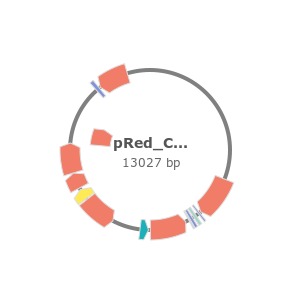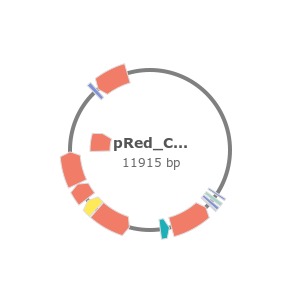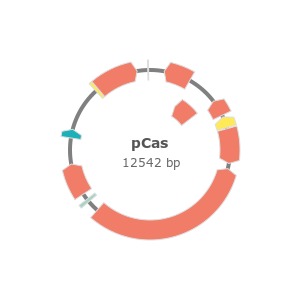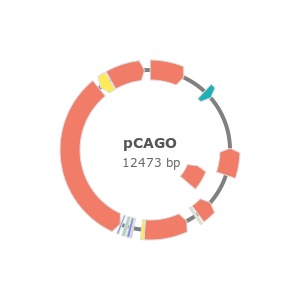ClyA-AS plasmid from Shuo Huang
ClyA-AS
Cat. No.:
MC_0068789
Availability:
4 µg of lyophilized plasmid
(1 µg for low-copy plasmid)
(1 µg for low-copy plasmid)
Price:
$65
| Keywords | Other |
| Vector Backbone | PET-30 |
| Source | Member Deposit |
| Depositor | Shuo Huang |
| Organization | Nanjing University |
| Description | The plasmid ClyA-AS is designed for the preparation of a mutant Cytolysin A (ClyA). ClyA is a cytolytic a-helical toxin which results haemolytic phenotype of several Escherichia coli and Salmonella enterica strains. The dodecameric ClyA is cylinder-shaped with a wide inner diameter of 70 A. The large inner diameter makes it capable for the detection of macromolecules, such as dsDNA and proteins. ClyA-AS, which is a mutant of ClyA, is engineered to avoid the effect of the negatively charged residues in the inner wall. It has been used to monitor the binding process of ligands to internalized proteins. (Soskine M, Biesemans A, Maglia G. Single-molecule analyte recognition with ClyA nanopores equipped with internal protein adaptors[J]. Journal of the American Chemical Society, 2015, 137(17): 5793-5797.) It is also employed as a nanoreactor to report the conformational changes of native proteins. ( Van Meervelt V, Soskine M, Singh S, et al. Real-time conformational changes and controlled orientation of native proteins inside a protein nanoreactor[J]. Journal of the American Chemical Society, 2017, 139(51): 18640-18646.). |
| Publication | Single-Molecule Analyte Recognition with ClyA Nanopores Equipped with Internal Protein Adaptors |
| Plasmid Copy | High Copy |
| Bacterial Resistance | Kanamycin |
| Growth Strain | E. coli BL21(DE3) |
| Growth Temperature | 37°C |
| Plasmid Size (bp) | 6177 |
*Physical clone is shared by Dr. Shuo Huang. The ownership of this plasmid belongs to the original authors of Single-Molecule Analyte Recognition with ClyA Nanopores Equipped with Internal Protein Adaptors (DOI: 10.1021/jacs.5b01520) . Please cite the original paper if you use this plasmid for any research or publication work.
*This material may be covered by one or more patents, trademarks and/or copy rights owned or controlled by Depositors or any third parties. This material is available to academic and nonprofit organizations for research use only. Please contact MolecularCloud at plasmid@genscript.com and the Depositor directly if you are from industrial institute or attempt for profit application. This material is not intended to be used therapeutic or diagnostic purposed in humans or animals.



